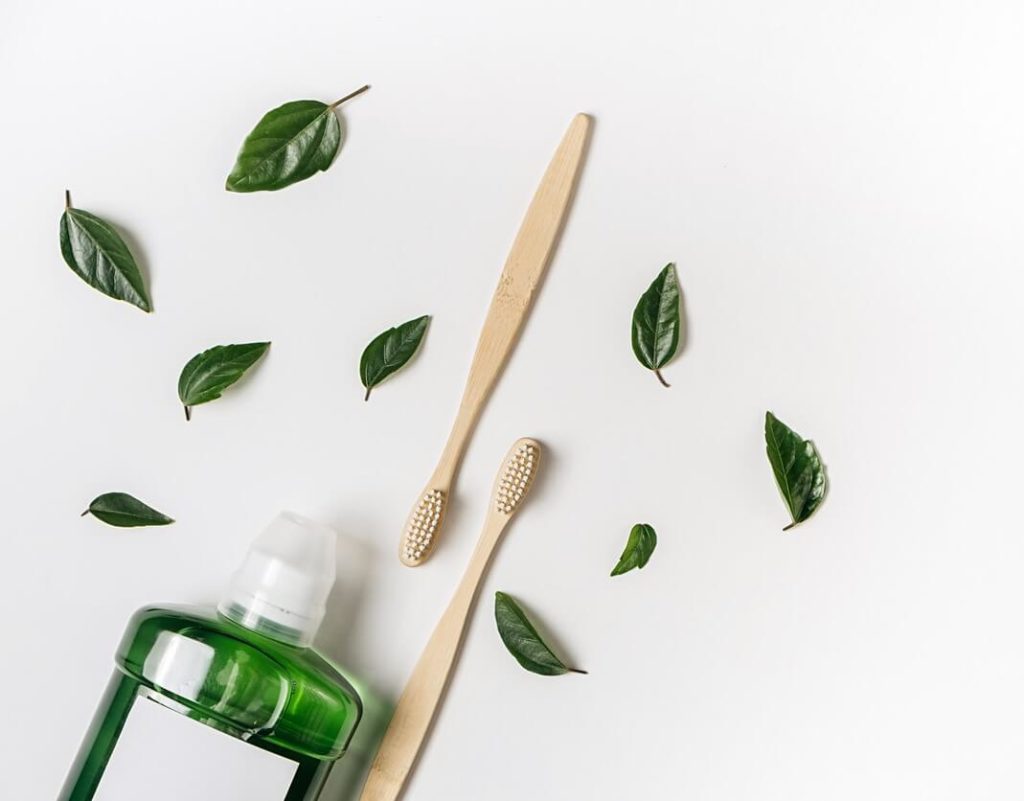Natural healing mouthwash: how to do it?
Written by: Loris Vitry (holistic coach)
Validated by: Cathy Maillot (Osteopath)
Caution: If you have any medical questions or concerns, please speak to your doctor. Even if the articles on this site are based on scientific studies, they do not replace professional medical advice, diagnosis or treatment.

Good oral hygiene relies on careful brushing.
But some problems, such as bleeding gums, require the use of a healing mouthwash in addition.
Sold in pharmacies or supermarkets, it is possible to make this type of mouthwash yourself.
Find out in this article what you need to know about healing mouthwashes.
Why use a healing mouthwash?
Healing mouthwash is generally recommended for those who often suffer from canker sores or whose gums bleed for no apparent reason, or while brushing.
It is composed of healing, fluorine and mild anti-inflammatory drugs.
Thanks to its components, it stops the bleeding and strengthens the mucous membranes so that you can brush your teeth in the future without pain.
In addition, the fluoride present in the healing mouthwash in the form of salts can effectively treat dental hypersensitivity.
However, it is recommended not to overdo it because if a small dose helps protect tooth enamel, overdose can damage it.
In addition, it is hyaluronic acid that is often the active ingredient in pharmaceutical mouthwashes.
While it can speed up the healing process by laying on wounds on the mucous membranes, its regular use is a source of annoyance for the mouth.
Indeed, these solutions contain alcohol, which is able to deteriorate the oral flora if it is frequently used.
The natural healing mouthwash, like all natural solutions, is safe for the oral flora.
Made from a natural product, it contains neither fluorine nor active ingredients for its conservation.
Although it is recommended not to abuse it too, it saves you the daily stress due to the inconvenience that occurs following an overdose of industrial mouthwash.
In addition, in addition to being economical, you do not need to consult a doctor to use it.
In a simple way, natural mouthwash helps to avoid fluoride and antiseptics.
How to use a mouthwash?
Whether natural or not, healing mouthwash cannot be used just any way.
Above all, keep in mind that it does not replace tooth brushing, but rather is used as a supplement to finish the action of the brush.
The natural healing mouthwash can be taken for therapeutic use or to supplement dental care.
Either way, it should be used on an ad hoc basis and not continuously.
Easy to use, just after brushing, pass it through your mouth while gargling a few times to benefit from its action.
Unlike those sold in pharmacies, there is no specific dose for the use of natural healing mouthwash.
However, it is recommended not to abuse it and to stay within the standards.
Note that this type of solution is usually done in a glass of water.
You will then need to keep the liquid to work properly for 3 or 4 minutes in the mouth before spitting it out.
Considering the component of your natural mouthwash, rinse your mouth after use.
How to make a natural healing mouthwash?
Doing a natural healing mouthwash at home is much easier than you might imagine.
Indeed, we find in our kitchens everything necessary for the realization of this solution.
Often overlooked, products such as cloves, cooking salt and baking soda are very effective in maintaining oral hygiene.
The important point here is that the manufacture of this solution varies depending on the components chosen.
Here are a few natural healing mouthwash recipes:
Salt mouthwash
Used to reduce inflammation, salt water is often recommended as a mouthwash after going to the dentist.
It can also be used to properly clean the mouth.
Easy to make, just put a teaspoon of salt in a tall glass of lukewarm water.
It should then be used as a gargle for 3 minutes after stirring everything.
Baking soda mouthwash
Baking soda is known for its many benefits.
Used as part of oral hygiene, it provides fresh breath.
In addition to removing dental plaques, it has a descaling effect.
It also helps to fight against bleeding gums.
In addition, baking soda helps against the discomfort caused by abalone.
To make this healing natural mouthwash, you will need a glass of lukewarm water and a teaspoon of baking soda.
Mix everything together and use as a gargle for 3 to 4 minutes after brushing your teeth.
Rinse your mouth afterwards to avoid unpleasant baking soda taste or deposits.
Clove mouthwash
Cloves are known for their antibacterial and anesthetic properties.
This makes it widely used by dentists.
To get your mouthwash, you just need to make an infusion of cloves in a glass of lukewarm water.
Then filter the mixture.
The nail-based mouthwash effectively fights against bleeding gums and dental plaques.
It also helps calm dental hypersensitivity.
Nettle mouthwash
Nettles are also a natural alternative to fight against canker sores, oral inflammations and infections.
To make this mouthwash, you need to boil a large handful of nettles in a pot of water.
Let the mixture cool and strain it.
After brushing your teeth use your bath tub solution.
Do not forget to rinse your mouth with clean water after using the infusion.
Very economical, the healing natural mouthwash is easy to do.
Ideal for those who avoid fluoride, it is important that it is carried out under good hygienic conditions to be effective.
Finally, if despite its use your gums continue to bleed or the dental hypersensitivity persists, make an appointment with a dentist.
After consultation, he will prescribe a treatment adapted to your condition.
Continue reading:
Eyelid trembling: how to stop it?

